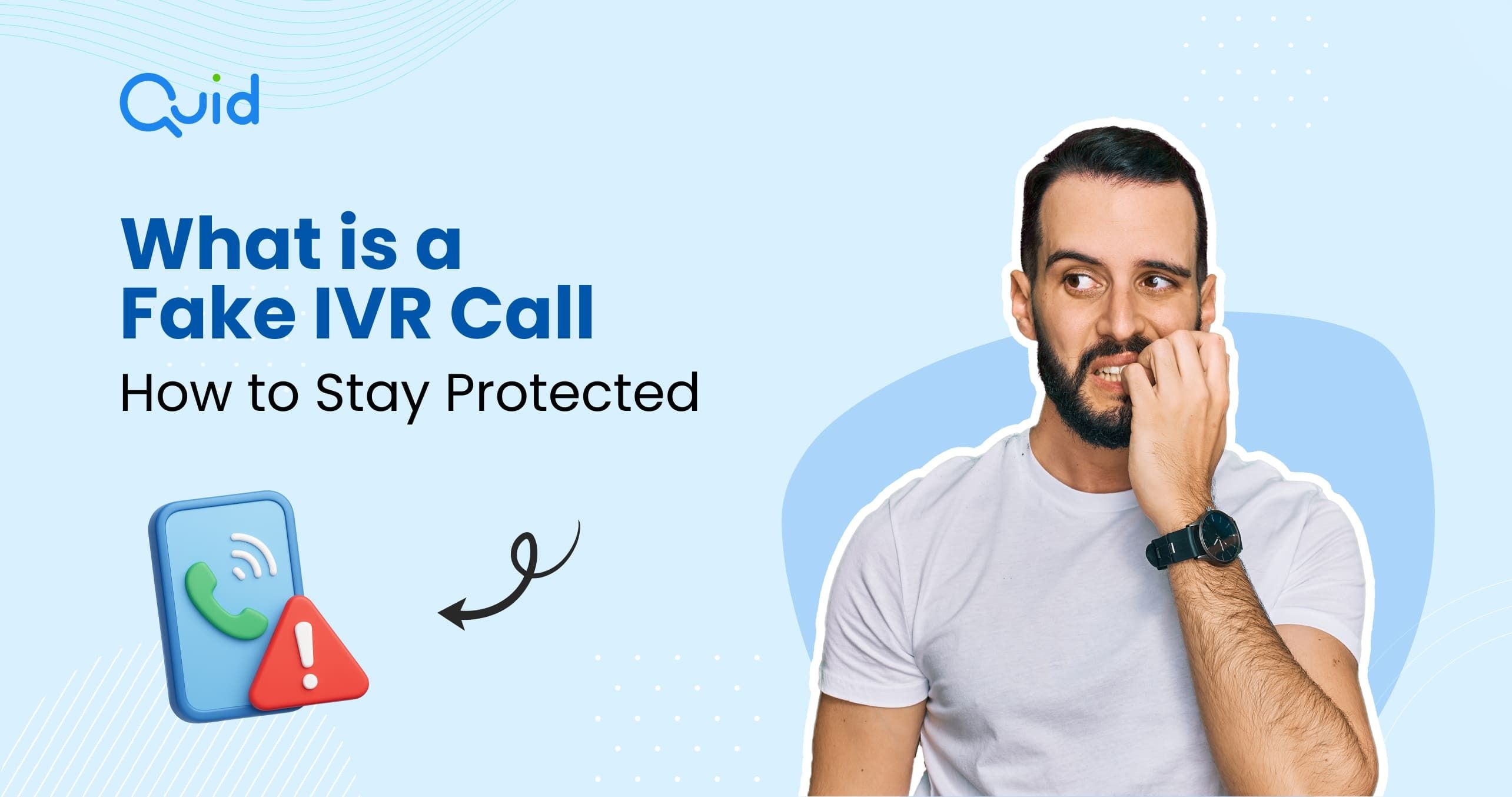
Cybercrime is on the rise, becoming increasingly smarter and harder to spot every day. With every leap in technology, scammers continue to find new techniques to defraud individuals and extort money from them. One such growing threat is the fake IVR call scam - a deceptive tactic that can cause more damage than one can expect.
In most cases, it starts like a routine automated call from your bank or service provider, or any agency. But within minutes, the same IVR call turns into a fraud designed to make you share sensitive details. In this blog, we will explain what fake IVR calls are, how scammers use them, and the steps you can take to stay safe.
Interactive Voice Response (IVR) is a technology that allows callers to interact with an automated system using voice commands or keypad inputs to access information or complete tasks without speaking to a human agent. It uses pre-recorded messages or text-to-speech technology, combined with a dual-tone multi-frequency (DTMF) interface.
The IVR calling system is commonly used in industries such as banking, customer support, and telecom sectors to provide 24/7 assistance. For example, when you call your bank to check your balance, you’re interacting with an interactive voice response system-generated call.
Fake IVR calls are fraudulent calls that mimic genuine IVR software or systems to deceive recipients. Cyber criminals use spoofed numbers to make calls appear to come from trusted sources such as banks, service providers, or government agencies.
Victims are tricked into sharing sensitive details such as One-Time Passwords (OTPs), debit card numbers, credit card verification values (CVVs), or internet banking credentials. The fraudulent use of IVR systems poses a serious risk as victims believe they are dealing with a legitimate institution.
Ramesh, a regular professional with a steady job, got a phone call that he thought was from his bank’s interactive voice response system. The automated voice message claimed that his debit card had been blocked and asked him to press '2' to unblock it. Once he followed the instructions, the system asked him to enter his 16-digit card number and OTP.
Believing it was a routine check, he did as he was told. A few minutes later, he found out that Rs. 45,000 had been debited from his account. When he contacted his bank, he was informed that they had initiated no such call. Had Ramesh verified the caller’s identity through his bank’s official helpline before entering his card details, he could have avoided the financial loss.
Fake IVR calls are emerging as a serious cyber threat, with scammers exploiting the trust people place in automated systems. By imitating genuine bank helplines and using spoofed numbers, fraudsters trick individuals into sharing details like PINs, OTPs, or login credentials —often leading to unauthorised transactions before victims even realise it.
To stay protected, treat every unexpected fraud call with suspicion. Always confirm the caller’s identity through official channels instead of acting on instructions directly from the call. Building awareness, verifying information carefully, and reporting suspicious activity promptly can go a long way in preventing losses.
An IVR number is a phone number connected to an Interactive Voice Response system. It enables callers to interact with automated menus using voice or keypad inputs, often used by banks, telecoms, or service providers.
Yes, many scammers use fake international calls or spoofed numbers to appear more convincing and hide their real identity.
No. While banks are common targets, scammers also impersonate telecom operators, government agencies, and even e-commerce platforms to steal sensitive information.
You should be cautious if the call asks for sensitive information, creates urgency, or comes from an unknown number. Always verify through official sources.
You can report a phone call fraud to the National Cyber Crime helpline number at 1930 or www.cybercrime.gov.in, or contact your bank’s fraud helpline directly.
Get credit at first sight and be closer to your goals.
Download Now